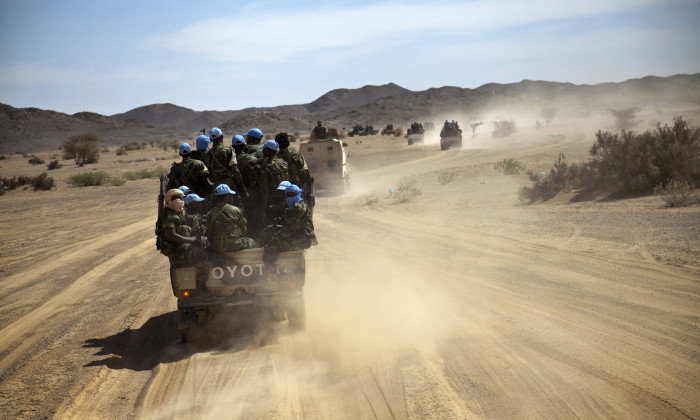Countering Terrorism and Violent Extremism
The fight against terrorism and violent extremism has become an important topic in the context of peace operations after the increase in terrorist activities across the globe from 2014 onwards. However, despite the verbal consensus about the importance to combat “terrorism”, there persists significant dissent among member states of international organizations concerning the definition of the phenomenon, its causes, and adequate methods for its containment.
In 2020, only a few peace operations are mandated to directly engage terrorist groups; among them are the G5 Sahel Joint Force (FC-G5S) and the African Union-led ATMIS mission in Somalia. An active fight against terrorism presents peace operations with considerable challenges in the areas of logistics, intelligence, equipment and training. Furthermore, where peace operations are involved in counter-terrorism measures, they risk becoming party to the conflict and thus putting their impartiality into question.
Considerably more peace operations provide a civilian and police contribution to the fight against violent extremism (Preventing Violent Extremism/PVE). The UN Regional Offices for West and Central Africa (UNOWAS and UNOCA), for example, support the Multinational Joint Task Force in the region around the Lake Chad in their operational and strategic planning. The UN Regional Centre for Preventive Diplomacy for Central Asia (UNRCCA) advises the region’s countries on the implementation of the UN Global Counter-Terrorism Strategy through national legislation.
Peace operations are increasingly challenged to counter violent extremism. Examples:
- AMISOM (Somalia)
- OSCE Programme Office in Bishkek (Kirgisistan)
- EUCAP Sahel Niger
 © Marco Dormino
© Marco Dormino
OSCE missions are active in Kyrgyzstan, Tajikistan, Bosnia and Herzegovina and Kosovo, where they provide technical advice and training with the aim to strengthen national capacities in fields such as small arms control, protection of critical infrastructure and forgery-proof identity documents. In addition, the missions support the dialogue between governments, media, NGOs and religious leaders in order to prevent the radicalization of young people, in particular through the internet.
In the context of its missions in the Sahel, the EU is also engaged in countering violent extremism. EUCAP Sahel Mali and EUCAP Sahel Niger support the > Security Sector Reform in their respective host countries, especially those institutions tasked with the fight against terrorism. Emphasis lies on the improvement of information and human resource management, the coordination between security agencies and the development of national and regional security strategies.
As of 15.08.2023